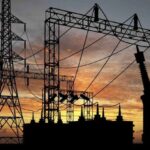It is always a delight listening to Khalifa Sanusi Lamido Sanusi, the 14th Emir of Kano. He keeps you spellbound by the force and smoothness of his delivery. It was no doubt a delight listening to him deliver the keynote speech in Kaduna yesterday at this year’s KadInvest, an annual investment forum organised by the Kaduna State Investment Promotion Agency, in which he serves as Vice Chairman.
His argument was a simple in-your-face one – Our problem is own making, whatever the global headwinds might have been. We should not blame the Ukraine crisis. It is a case of Nigeria’s curse. A difficult argument to fault, even if one does not subscribe to his totalisation of a complicated problem in a relatively simple manner, without a consideration for possible untoward implications of the prescription he has consistently pushed.
- Gunmen invade Kwara community, abduct 2
- NIGERIA DAILY:The Real Losers In the Eight Months Of ASUU Strike
Today, Khalifa said it was all about the data. His task was to share facts, present and speak to the data, not to come to a conclusion or offer an opinion.
I take a cue from him. My task here is to take on only one aspect of his speech and speak to what I believe he might have left out. Just as he did, I would be raising questions without necessarily coming to a conclusion or offering an opinion, letting the data, as I have found it, speak to the data as he presented it.
How can it be said that Nigeria consumes an average of over 60 million litres of petrol on daily basis? In fact, the data from NMDPRA puts the figure at 66.89 million litres per day for 2022. Are we drinking the petrol? That is the question raised by Khalifa, same question that has been on the minds of many of us.
Sanusi wondered how Nigeria consumes 66 million litres a day while Pakistan with just about the same population consumes about 21 million litres a day, which means, as he said, that Nigeria consumes more than three times what Pakistan consumes?
As I have always had my doubts about these figures, I found it more startling, positioned side by side with that of Pakistan.
But even as I have had my doubts about the figure put out for consumption, I have never been one to sign on to the removal of what has been tagged fuel subsidy (like the Khalifa) on the basis of a possible padding of the importation/consumption figures.
Between the usual restrictive assumption that petrol is only used to power vehicles, forgetting the millions of households and small businesses that are powered by petrol generators and the comparison with Pakistan, I was sufficiently challenged to find out if Nigeria was indeed an outlier in terms of petrol consumption as has been generally assumed.
Are we drinking the Petrol?
Here is what I found.
In terms of daily consumption figures, Nigeria ranks 37th, with between 316,000 barrels per day and 428,000 barrels per day, depending on the source of data, while Pakistan is 33rd, with consumption figures of between 517,000 barrels per day and 556,000 barrels per day, again dependent on the source.
I found that Egypt with a population of about 110 million has consumption figure of 802,000 barrels per day and South Africa, with 60 million in population consumes 660,000 barrels per day.
Khalifa, like others, might be more inclined to quoting GDP per capital, but on the basis of GDP figures, Nigeria has higher GDP than Egypt and South Africa, but consumes less oil per day.
I found that the comparison between Nigeria and Pakistan, as made by the Khalifa, can easily lead one to error of conclusion.
I wouldn’t know the source of the data SLS referenced, which puts Pakistan’s consumption figures at 21 million. I found the daily consumption figures for Pakistan, as at June 2022 at 56 million litres per day.
Beyond that is what I have found to be the most understated part of the argument for withdrawal of subsidy – that lack of consideration of the other uses petrol is put in Nigeria, compared to other countries.
Take Pakistan, 79% of the fuel consumption is by the transportation sector, with 23 million litres of the 44.25 million litres consumed by vehicles going to motorcycles. 0.15% of the fuel consumption is for households. That is in stark contrast with Nigeria, where 25% of petrol consumption is by households.
I believe that is one peculiarity about our consumption pattern that many of the advocates for blind removal of subsidy fail to take into consideration. They usually concentrate more on consumption by cars and SUVs when making the argument that fuel subsidy is about catering for the rich, forgetting it is much more than that.
Even with the number of vehicles in the two countries, there is a gap that might help dissociate rather than associate the two. Between Nigeria and Pakistan, CEIC data puts the number of registered vehicles in Pakistan at 6.6 million, as at December, 2020, while that of Nigeria, as at 2018, was put at 12 million.
Beyond the explanation that might offer in terms of disparity in the level of consumption, having established the high level of household consumption of petrol in Nigeria, a comparative analysis of the power generating capacity of the two countries further offers insight on the difference in levels of consumption.
While Pakistan has a total installed capacity of over 40,000MW, Nigeria’s capacity is less than 10,000MW, with distribution peaking at 5,000MW. Even when the country was reported to be experiencing ‘serious shortfall’ Pakistan was still producing about 22,000MW of its 26,000MW requirement. That should explain why household use in Pakistan only accounts for 0.15 per cent of the petrol consumption, while that for Nigeria is 25 per cent.
Whereas I have reservations about the 66 million consumption figures and the level of transparency by the NNPC, even querying the claim to subsidy or under recovery, which I find difficult to reconcile with the Direct Sale, Direct Purchase (DSDP) arrangement through which allocation of crude meant for local refining is exchanged for refined products, an interrogation of the data, especially now that Pakistan has been brought into it, makes the consumption figures not as outlandish as it originally appeared.
Whatever the case might be, looks like we are not drinking the petrol after all or at least, not in the quantity we ordinarily assume.
I stand with the Khalifa that the NNPC needs to come out clean. He calls for evidence of all imports, for which it has claimed subsidy or under recovery to be laid out in the open.
Even without coming to a conclusion, I second that call. I further call for a full and complete disclosure of expectations from its JV agreements, PSC and even the DSDP agreements. As I have consistently argued over the years, I struggle to see the basis for a claim to subsidy or under recovery with the DSDP in place. The transmutation the NNPC has undertaken should not be a cover for placing a lid on a past that has been thick and opaque.
A dispassionate interrogation of data can lead, once in a while, to the most unexpected of directions.
Are we drinking the petrol?
By Simbo Olorunfemi

 Join Daily Trust WhatsApp Community For Quick Access To News and Happenings Around You.
Join Daily Trust WhatsApp Community For Quick Access To News and Happenings Around You.


